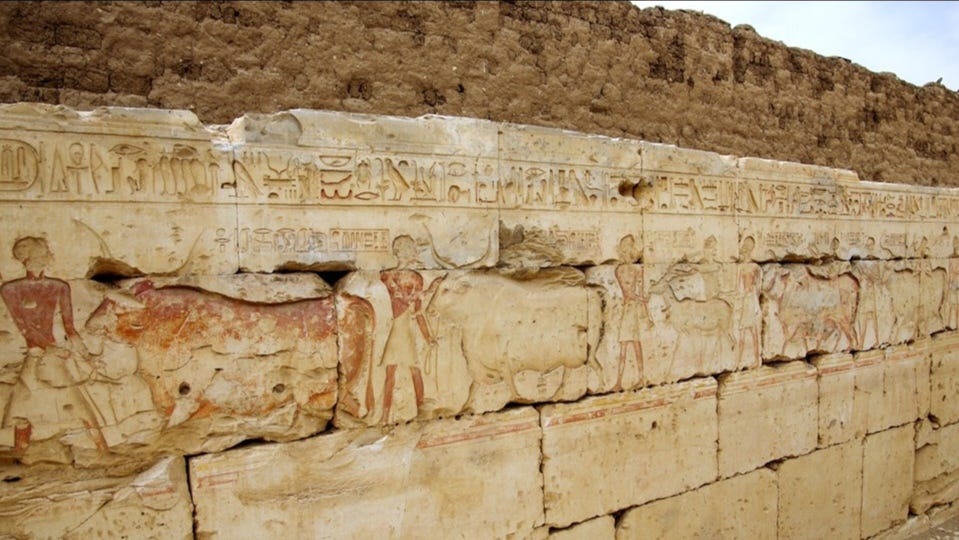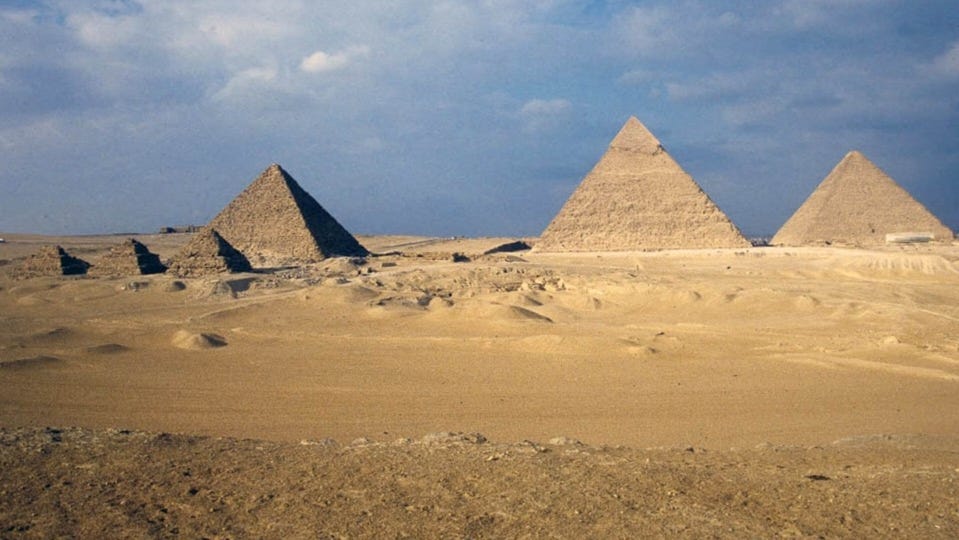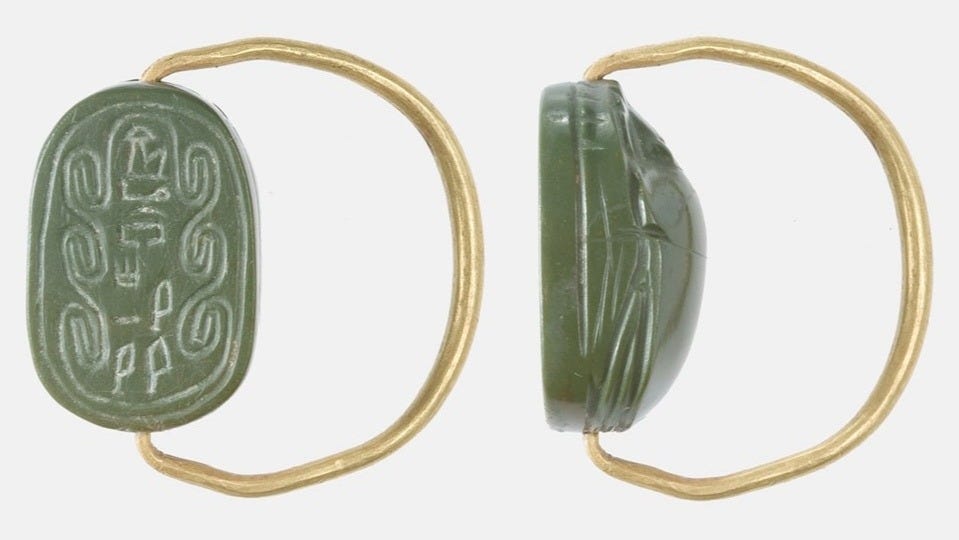Genesis 41: Joseph Interprets Pharaoh's Dream
From Prison to Power: Joseph's Journey of Faith and Leadership.
As we read in Genesis 40, Joseph was in prison, where he interpreted the dream of the royal cupbearer and the royal baker of Pharaoh, and the dream resulted just as Joseph had interpreted. Thinking he had done right, he thought he would be rewarded by release with immediate effect, but later, the reward was forgotten by the royal cupbearer, and Joseph stayed in prison. He didn’t know that this would lead him to the pathway to glory which was yet to be revealed, but he knew that God was still with him in prison as well.
Read Genesis 41 full chapter: READ NOW
Joseph Interprets Pharaoh's Dream
In Genesis 41, we see the accounts of Joseph's thirteen years of imprisonment come to an abrupt end, as Joseph came to the presence of Pharaoh - but it was not just the surroundings that changed. A teenager who riled his family had become the essence of wisdom now. The years of tears and the development of a deeper personality and way of life through experiences in prison came to an end and made known to us why Joseph had been allowed to suffer in this way. God controlled every event, and it was evident that Pharaoh dreamt two disconcerting dreams. It became even more understandable as to why the royal cupbearer suggested Joseph to interpret the Pharaoh's dreams. To which Joseph answered, 'God will give Pharoah the answer' (Genesis 41:16). Hearing this and also the interpretation of the dream, Pharaoh appointed Joseph his deputy, saying, 'Can we find anyone like this man, one in whom is the spirit of God?' (Genesis 41:38).

Genesis 41:16 CSB: “I am not able to,” Joseph answered Pharaoh. “It is God who will give Pharaoh a favorable answer.”
Genesis 41:38 CSB: and he said to them, “Can we find anyone like this, a man who has God’s spirit in him? ”
Joseph: A Prophet, Wise Ruler, and a Foreshadowing of Christ
Joseph thus epitomized the gifts of the prophet and a wise ruler. He has divine insight into the future and governed Egypt with the Spirit of God so that Egypt and the surrounding countries were saved from famine (Psalms 72:16 and Isaiah 11:2). In this he is once again a 'type of Christ', the greatest prophet and king; the suffering servant through whom the world is saved and to whom every knee must bow (Philippians 2:10 and Genesis 41:43). Christ's experience of suffering followed by glory is a path all Christians must be ready to follow (1 Peter 5:6).

Psalms 72:16 CSB: May there be plenty of grain in the land; may it wave on the tops of the mountains. May its crops be like Lebanon. May people flourish in the cities like the grass of the field.
Isaiah 11:2 CSB: The Spirit of the Lord will rest on him — a Spirit of wisdom and understanding, a Spirit of counsel and strength, a Spirit of knowledge and of the fear of the Lord.
Philippians 2:10 CSB: so that at the name of Jesus every knee will bow — in heaven and on earth and under the earth.
Genesis 41:43 CSB: He had Joseph ride in his second chariot, and servants called out before him, “Make way!” So he placed him over all the land of Egypt.
1 Peter 5:6 CSB: Humble yourselves, therefore, under the mighty hand of God, so that he may exalt you at the proper time.
Genesis 41 also raises questions:
1. Joseph’s Interpretation of Paired Dreams: A Sign of God’s Firm Decree
Twice in consecutive episodes, Joseph interpreted two dreams, and here he observed that the reason for paired dreams 'is that the matter has been firmly decided by God, and God will do it soon’. (Genesis 41:32)
Genesis 41:43 CSB: He had Joseph ride in his second chariot, and servants called out before him, “Make way!” So he placed him over all the land of Egypt.
2. The Fulfillment of Joseph’s Own Dreams: A Question of Destiny
What then about his pair of dreams (Genesis 37: 5-11)? Were they going to be fulfilled?
Genesis 37:5-11 CSB: [5] Then Joseph had a dream. When he told it to his brothers, they hated him even more. [6] He said to them, “Listen to this dream I had: [7] There we were, binding sheaves of grain in the field. Suddenly my sheaf stood up, and your sheaves gathered around it and bowed down to my sheaf.” [8] “Are you really going to reign over us? ” his brothers asked him. “Are you really going to rule us? ” So they hated him even more because of his dream and what he had said. [9] Then he had another dream and told it to his brothers. “Look,” he said, “I had another dream, and this time the sun, moon, and eleven stars were bowing down to me.” [10] He told his father and brothers, and his father rebuked him. “What kind of dream is this that you have had? ” he said. “Am I and your mother and your brothers really going to come and bow down to the ground before you? ” [11] His brothers were jealous of him, but his father kept the matter in mind.
3. Manasseh and Ephraim
Do the names Manasseh and Ephraim that he gave to his sons imply that there was still something missing, that he had not forgotten his father's household? These are the hints that Joseph's appointment to the supreme office in Egypt is not the end of Joseph's story; there is still more of God's purpose to be revealed.
Genesis 41:50-52 CSB: [50] Two sons were born to Joseph before the years of famine arrived. Asenath daughter of Potiphera, priest at On, bore them to him. [51] Joseph named the firstborn Manasseh and said, “God has made me forget all my hardship and my whole family.” [52] And the second son he named Ephraim and said, “God has made me fruitful in the land of my affliction.”
Application
As Joseph was able to interpret Pharaoh's dream, he still honoured God and said that ‘God would give Pharaoh the answer’. He never used this wisdom for his own glory but intended to keep God first and then interpret the dream. Pharaoh realised God's divine providence, wisdom, and leadership over Joseph in this, and made Joseph a second command over all the nations and let him lead them in preparing for the famine. If we put God first and honour him, God will exalt us just like he exalted Joseph and blessed him.
Key Notes
1. Genesis 41: 17-24
The Pharaoh retells the dream with the original account (Genesis 41: 1-7) to see the impression they have left on him.
Genesis 41:17-24 CSB: [17] So Pharaoh said to Joseph, “In my dream I was standing on the bank of the Nile, [18] when seven well-fed, healthy-looking cows came up from the Nile and grazed among the reeds. [19] After them, seven other cows #— #weak, very sickly, and thin #— #came up. I’ve never seen such sickly ones as these in all the land of Egypt. [20] Then the thin, sickly cows ate the first seven well-fed cows. [21] When they had devoured them, you could not tell that they had devoured them; their appearance was as bad as it had been before. Then I woke up. [22] In my dream I also saw seven heads of grain, full and good, coming up on one stalk. [23] After them, seven heads of grain #— #withered, thin, and scorched by the east wind #— #sprouted up. [24] The thin heads of grain swallowed the seven good ones. I told this to the magicians, but no one can tell me what it means.”
Genesis 41:1-7 CSB: [1] At the end of two years Pharaoh had a dream: He was standing beside the Nile, [2] when seven healthy-looking, well-fed cows came up from the Nile and began to graze among the reeds. [3] After them, seven other cows, sickly and thin, came up from the Nile and stood beside those cows along the bank of the Nile. [4] The sickly, thin cows ate the healthy, well-fed cows. Then Pharaoh woke up. [5] He fell asleep and dreamed a second time: Seven heads of grain, plump and good, came up on one stalk. [6] After them, seven heads of grain, thin and scorched by the east wind, sprouted up. [7] The thin heads of grain swallowed up the seven plump, full ones. Then Pharaoh woke up, and it was only a dream.
2. Genesis 41: 33-36
Note how the knowledge of God's purpose is a spur to human action, not an excuse for doing nothing.
Genesis 41:33-36 CSB: [33] “So now, let Pharaoh look for a discerning and wise man and set him over the land of Egypt. [34] Let Pharaoh do this: Let him appoint overseers over the land and take a fifth of the harvest of the land of Egypt during the seven years of abundance. [35] Let them gather all the excess food during these good years that are coming. Under Pharaoh’s authority, store the grain in the cities, so they may preserve it as food. [36] The food will be a reserve for the land during the seven years of famine that will take place in the land of Egypt. Then the country will not be wiped out by the famine.”
3. Genesis 41: 39-43
Joseph's job description and the description of his installation show he was being appointed vizier of Egypt.
Genesis 41:39-43 CSB: [39] So Pharaoh said to Joseph, “Since God has made all this known to you, there is no one as discerning and wise as you are. [40] You will be over my house, and all my people will obey your commands. , Only I, as king, will be greater than you.” [41] Pharaoh also said to Joseph, “See, I am placing you over all the land of Egypt.” [42] Pharaoh removed his signet ring from his hand and put it on Joseph’s hand, clothed him with fine linen garments, and placed a gold chain around his neck. [43] He had Joseph ride in his second chariot, and servants called out before him, “Make way! ” So he placed him over all the land of Egypt.

4. Genesis 41: 43
Make was is probably better translated as 'bow down'.
Genesis 41:43 CSB: He had Joseph ride in his second chariot, and servants called out before him, “Make way! ” So he placed him over all the land of Egypt.
5. Genesis 41: 57
In all the world. For example, all the countries near Egypt.
Genesis 41:57 CSB: Every land came to Joseph in Egypt to buy grain, for the famine was severe in every land.




